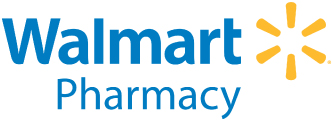Diabetes Information
Diabetes mellitus, often simply referred to as diabetes, is a group of metabolic diseases in which a person has high blood sugar, either because the body does not produce enough insulin, or because cells do not respond to the insulin that is produced. This high blood sugar produces the classical symptoms of polyuria (frequent urination), polydipsia (increased thirst) and polyphagia (increased hunger).
There are three main types of diabetes:
Type 1 diabetes: results from the body's failure to produce insulin, and presently requires the person to inject insulin. (Also referred to as insulin-dependent diabetes mellitus, IDDM for short, and juvenile diabetes.)
Type 2 diabetes: results from insulin resistance, a condition in which cells fail to use insulin properly, sometimes combined with an absolute insulin deficiency. (Formerly referred to as non-insulin-dependent diabetes mellitus, NIDDM for short, and adult-onset diabetes.)
Gestational diabetes: is when pregnant women, who have never had diabetes before, have a high blood glucose level during pregnancy. It may precede development of type 2 DM.
Other forms of diabetes mellitus include congenital diabetes, which is due to genetic defects of insulin secretion, cystic fibrosis-related diabetes, steroid diabetes induced by high doses of glucocorticoids, and several forms of monogenic diabetes.
All forms of diabetes have been treatable since insulin became available in 1921, and type 2 diabetes may be controlled with medications. Both type 1 and 2 are chronic conditions that usually cannot be cured. Pancreas transplants have been tried with limited success in type 1 DM; gastric bypass surgery has been successful in many with morbid obesity and type 2 DM. Gestational diabetes usually resolves after delivery. Diabetes without proper treatments can cause many complications. Acute complications include hypoglycemia, diabetic ketoacidosis, or nonketotic hyperosmolar coma. Serious long-term complications include cardiovascular disease, chronic renal failure, retinal damage. Adequate treatment of diabetes is thus important, as well as blood pressure control and lifestyle factors such as smoking cessation and maintaining a healthy body weight. Globally as of 2010 it is estimated that there are 285 million people diabetes with type 2 making up about 90% of the cases.
Medication Types
Oral Medications
Anti-diabetic medications treat diabetes mellitus by lowering glucose levels in the blood. With the exceptions of insulin, exenatide, and pramlintide, all are administered orally and are thus also called oral hypoglycemic agents or oral antihyperglycemic agents. There are different classes of anti-diabetic drugs, and their selection depends on the nature of the diabetes, age and situation of the person, as well as other factors.
Several groups of drugs, mostly given by mouth, are effective in Type II, often in combination. The therapeutic combination in Type II may include insulin, not necessarily because oral agents have failed completely, but in search of a desired combination of effects. The great advantage of injected insulin in Type II is that a well-educated patient can adjust the dose, or even take additional doses, when blood glucose levels measured by the patient, usually with a simple meter, as needed by the measured amount of sugar in the blood.
Insulin Therapy
Insulin is used medically to treat some forms of diabetes mellitus. Patients with Type 1 diabetes mellitus depend on external insulin (most commonly injected subcutaneously) for their survival because the hormone is no longer produced internally. Patients with Type 2 diabetes mellitus are insulin resistant, have relatively low insulin production, or both; certain patients with Type 2 diabetes may eventually require insulin if other medications fail to control blood glucose levels adequately.
Diabetes Medication Information
Metformin
Metformin is an oral antidiabetic drug in the biguanide class. It is the first-line drug of choice for the treatment of type 2 diabetes, in particular, in overweight and obese people and those with normal kidney function. Its use in gestational diabetes has been limited by safety concerns. It is also used in the treatment of polycystic ovary syndrome, and has been investigated for other diseases where insulin resistance may be an important factor. Metformin works by suppressing glucose production by the liver.
Metformin is the only antidiabetic drug that has been conclusively shown to prevent the cardiovascular complications of diabetes. It helps reduce LDL cholesterol and triglyceride levels, and is not associated with weight gain. As of 2010, metformin is one of only two oral antidiabetics in the World Health Organization Model List of Essential Medicines (the other being glibenclamide).
When prescribed appropriately, metformin causes few adverse effects (the most common is gastrointestinal upset) and is associated with a low risk of hypoglycemia. Lactic acidosis (a buildup of lactate in the blood) can be a serious concern in overdose and when it is prescribed to people with contraindications, but otherwise, there is no significant risk.
Lantus
Insulin glargine, marketed by Sanofi-Aventis under the name Lantus, is a long-acting basal insulin analogue, given once daily to help control the blood sugar level of those with diabetes. It consists of microcrystals that slowly release insulin, giving a long duration of action of 18 to 26 hours, with a "peakless" profile (according to the Lantus package insert). Pharmacokinetically, it resembles basal insulin secretion of non-diabetic pancreatic beta cells. Sometimes, in type 2 diabetes and in combination with a short acting sulfonylurea (drugs which stimulate the pancreas to make more insulin), it can offer moderate control of serum glucose levels. In the absence of endogenous insulin—Type 1 diabetes, depleted type two (in some cases) or latent autoimmune diabetes of adults in late stage—Lantus needs the support of fast acting insulin taken with food to reduce the effect of prandially derived glucose.
Actos
Pioglitazone is a prescription drug of the class thiazolidinedione (TZD) with hypoglycemic (antihyperglycemic, antidiabetic) action. Pioglitazone is marketed as trademarks Actos in the USA, Canada, the UK and Germany, Glustin in Europe,"Glizone" and "Pioz" in India by Zydus CND and USV respectively and Zactos in Mexico by Takeda Pharmaceuticals. Actos was the tenth-best selling drug in the U.S. in 2008, with sales exceeding $2.4 billion. Its cardiovascular safety profile compares favorably with rosiglitazone (Avandia), which was withdrawn after concerns about an increased risk of cardiac events. However, pioglitazone has subsequently been found to be associated with bladder tumors and has been withdrawn in some countries.
Pioglitazone is used for the treatment of diabetes mellitus type 2 (previously known as non-insulin-dependent diabetes mellitus, NIDDM) in monotherapy and in combination with a sulfonylurea, metformin, or insulin. Pioglitazone has also been used to treat non-alcoholic steatohepatitis (fatty liver), but this use is presently considered experimental. Pioglitazone has also been found to reduce the risk of conversion from prediabetes to diabetes mellitus type 2 by 72%.
































